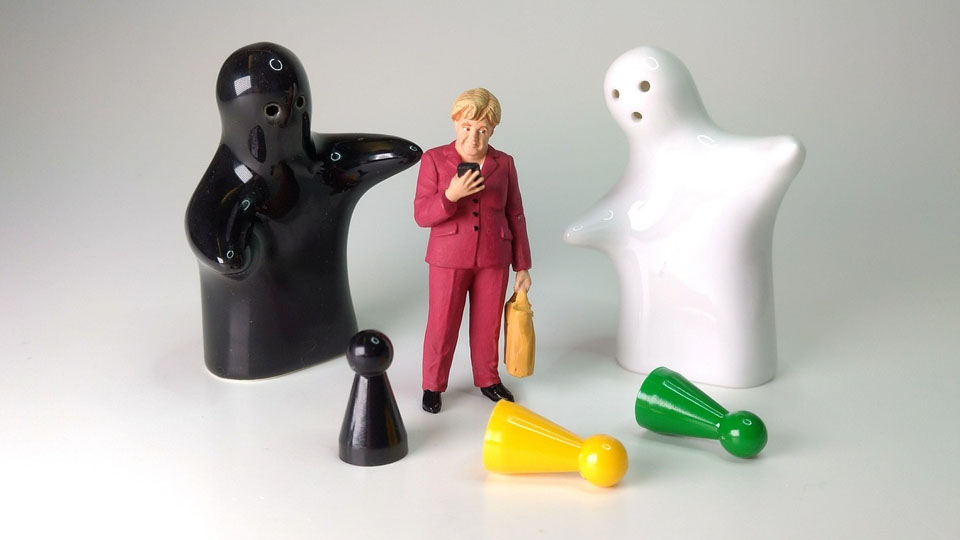By Author
By Dr. R. Balasubramaniam
Once upon a time, I believed words could change the world. I wrote about policy reform, development models, corruption crackdowns and governance frameworks. I thought if I kept at it — data in one hand, righteous rage in the other — I would eventually tip the balance. The world would read, nod solemnly and then proceed to fix itself.
Spoiler alert: The world did not fix itself. In fact, the world doubled down on being a flaming circus of chaos, complete with clowns who think they are economists and economists who speak like clowns.
Somewhere between my twelfth article on procurement irregularities and a long thread on decentralisation, I had an epiphany. Not the divine, clouds-parting kind — more the “dear God, why am I shouting into this void?” kind. I realised something important:
People don’t read serious things unless they are either policy wonks, paid to care, or trapped in a conference room with bad coffee.
So, I pivoted.
I started writing satire. Yes, satire — the noble art of poking the bear while pretending it’s a dance. For the past three months, I have been using humour to say the same things I used to say, only now people are laughing and reading. And occasionally even thinking. That’s progress.
Because let us be honest: The world is having a full-blown midlife crisis. The news is a never-ending binge of doom. War, climate catastrophe, financial scandals and people earnestly arguing about whether AI will take our jobs or just enslave us. In this environment, writing yet another solemn explainer on governance reforms is like performing jazz in a burning building. Technically impressive, but not quite the vibe.
Satire, on the other hand, sneaks past the deflector shields. It dresses up the truth in ridiculous hats and sneaks it into people’s brains when they’re not looking.
And it’s not like I’ve abandoned substance. The issues are still there — just told through the eyes of fictional bureaucrats, oblivious ministers and budget meetings that descend into interpretive dance. My years of serious writing weren’t wasted. They were training. Think of it as moving from black-and-white documentaries to full-colour mockumentaries.
The best part? Satire keeps me sane. I used to end each article feeling like I’d poured my soul into a black hole. Now I end with a smirk, sometimes even a chuckle. My inbox no longer fills with angry footnotes from economists but with notes that say, “You made me laugh, then think. That is dangerous. Keep going.”
And I will.
Because if the world insists on being this ridiculous, I might as well fight the madness with jokes sharp enough to draw blood — and smiles wide enough to remind people that all is not yet lost. Besides, who says you can’t challenge the system while making it laugh so hard it spills its coffee?
So, why bother laughing when the sky is falling, the oceans are rising and your internet connection is perpetually buffering during crucial video calls? Because, my dear reader, sometimes laughter is the only truly sane response to an insane world. Think of it as a strategic retreat, not a surrender. When faced with the sheer, unadulterated absurdity of modern existence — the self-important pronouncements of politicians who couldn’t organise a sock drawer, the fervent belief that blockchain will solve world hunger or the endless debates about pineapple on pizza — a hearty guffaw is a far more effective weapon than another strongly worded memo.
It’s about re-framing the chaos. Is your national budget meeting truly a serious deliberation, or is it an avant-garde performance piece where numbers are conjured from thin air and accountability is an abstract concept discussed only in hushed tones? Once you start seeing the latter, the frustration morphs into a wry amusement. The daily grind, the minor bureaucratic hurdles, the utterly baffling decisions made by people in power — they all become fodder for an internal stand-up routine. And a good joke, unlike a stern lecture, tends to stick. It burrows into the brain, a Trojan horse of truth delivered wrapped in a giggle.
Moreover, embracing the ridiculous allows you to reclaim a sliver of control. You did not start the war nor can you negotiate world peace. You cannot stop the existential dread, but you can choose to meet it with a smirk instead of a sigh. When you laugh at your problems, you subtly diminish their power over you. You transform them from insurmountable obstacles into comedic foils. The flat tyre on the way to an important meeting becomes a scene from a slapstick comedy, the endless hold music from customer service transforms into a minimalist opera.
This is not about denial; it is about perspective. It is acknowledging the mess, waving a hand at it with a theatrical flourish and then finding the punchline. Because if we can find humour in the fact that humanity is simultaneously inventing self-driving cars and arguing about flat earth, perhaps there is hope for us yet. Perhaps a shared laugh is a more potent unifier than a shared crisis. And who knows, maybe if we all started chuckling at the sheer lunacy of it all, we might just accidentally stumble upon a solution. Or, at the very least, we will have a much more entertaining apocalypse.
[Dr. R. Balasubramaniam is the Founder of Swami Vivekananda Youth Movement. ‘The Lighter Side’ is a series of satirical articles that one hopes will evoke laughter of what many of us experience in real life.]
